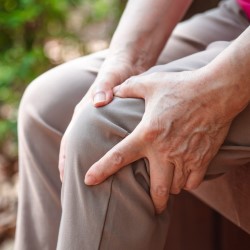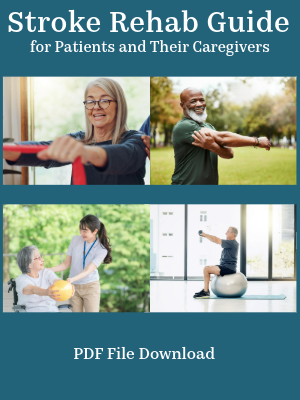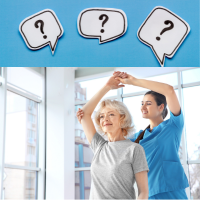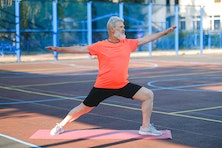Submissions from Readers
Jerking Movement After Stroke
by Bushra Ghafar
Question: Why is there a sudden jerk on the paralyzed/flaccid side of a stroke patient? Is it normal or not?
Answer: Here are a few of the reasons stroke patients may experience sudden jerking movements:
- Clonus Some stroke patients will experience clonus which causes large, noticeable movements that are different from typical twitches. It is often accompanied by hyperreflexia, a condition where the body's reflexes are overactive or overresponsive.
- Myoclonus Stroke patients can also experience myoclonus, a sudden, brief involuntary twitching or jerking of a muscle or group of muscles. The twitching cannot be stopped or controlled by the person experiencing it.
- Focal onset seizures These seizures occur in one part of the brain and can cause:
Muscle twitching
Falling
Changes in sensation, such as distorted smell or taste
Dazed or confused appearance - Generalized onset seizures
These seizures affect both sides of the brain and can cause the following symptoms:
Muscle spasms or flailing
Loss of consciousness
Verbal sounds
Rhythmic muscle movements
Stiffening
Loss of bladder control
Rapid eye movements or blank staring
*Important note: Seizures can manifest in different ways, some being evident with large jerky movements or loss of consciousness but others being quite deceiving with someone simply staring into space or experiencing small twitches. This is why it is important to discuss any abnormal movements and episodes with your MD.
Seizures, on the other hand, are very serious and can lead to death. Anti-seizure medication is typically used to control seizures.
By consulting with a MD, one can determine the cause of their muscle jerking/twitching and devise a treatment plan accordingly.
Treatment Tips from Others
To see tips from other survivors and caregivers about their treatment recommendations, click here.
Get Our Stroke Rehab Guide

Our stroke rehab guide is designed specifically for patients and caregivers. It's in pdf format and can be immediately downloaded. It includes about
- Stroke Definition & Causes
- Stroke Treatment
- Rehabilitation Information for Physical, Occupational and Speech Therapy
- Exercise pictures
- Q&A from patients and caregivers
- Adaptive Equipment & Techniques
- How to Prevent Another Stroke & More!
Medical Disclaimer: All information on this website is for informational purposes only. This website does not provide medical advice or treatment. Always seek the advice of your physician or other healthcare provider before undertaking a new healthcare or exercise regimen. Never disregard professional medical advice or delay seeking medical treatment because of something you have read on this website. See the disclaimer page for full information.
- Home
- Stroke Questions
- Jerking Movement After Stroke















